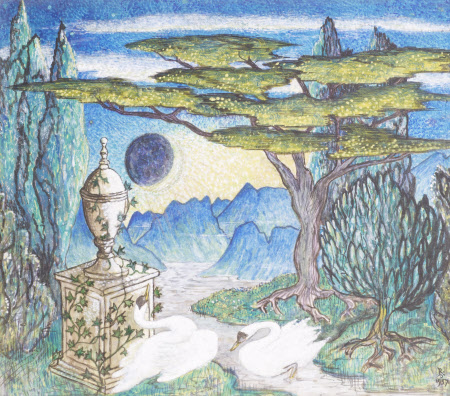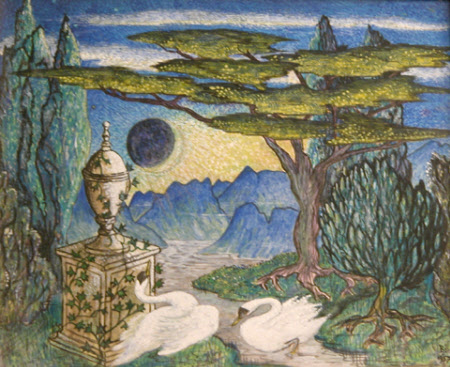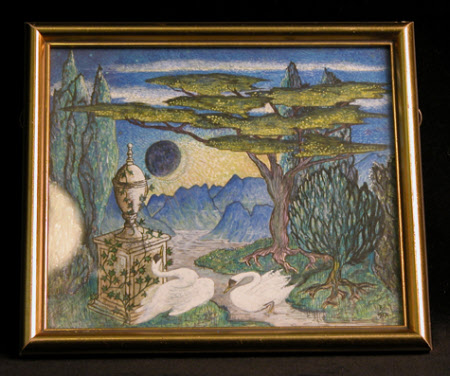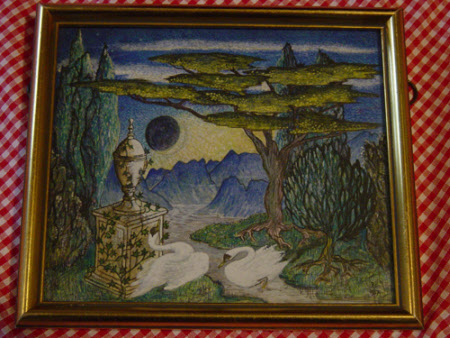'Swannes of Goodly Hewe' from Edmund Spensers's 'Prothalamion' (1566)
Raymond George Lister (Cambridge 1919 - 2001)
Category
Art / Oil paintings
Date
1957 (monogrammed and dated)
Materials
Oil on canvas
Measurements
127 x 150 mm
Place of origin
England
Order this imageCollection
Anglesey Abbey, Cambridgeshire
NT 515888
Summary
Oil painting on canvas, 'Swannes of Goodly Hewe' from Edmund Spensers's 'Prothalamion' (1566) by Raymond Lister (b.Cambridge 1919), monogrammed, RL and dated bottom right, 57 [1957]. The scene is a fantastical landscape; in the centre foreground are two white swans, one standing on the grassy embankment the other standing in a shallow stream; on the left a covered urn on a pedestal; on the embankment of the stream to left and right, a variety of trees painted in a stylised manner, the stream meanders down the centre into a mountainous landscape; a dark blue sky with clouds with an eclipse of the sun taking place. The picture refers to Edmund Spenser's poem Prothalamion describing two swans at the Thames, relating it to the myth of Jove and Leda. According to the myth, the Greek god Zeues of hsi Roman counterpart, Jove (Jupiter) falls in love with Leda and comes to court her in the guise of a beautiful swan. The poet feels that the Thames has done justice to his nuptial song by "flowing softly" according to his request: "Sweet Thames run softly till I end my song." With that I saw two Swannes of goodly hewe, Come softly swimming downe along the Lee; Two fairer Birds I yet did neuer see: The snow which doth the top of Pindus strew, Did neuer whiter shew, Nor Jove himselfe when he a Swan would be For loue of Leda, whiter did appeare: Yet Leda was they say as white as he, Yet not so white as these, nor nothing neare; So purely white they were, That euen the gentle streame, the which them bare, Seem'd foule to them, and bad his billowes spare To wet their silken feathers, least they might Soyle their fair plumes with water not so fayre, And mar their beauties bright, That shone as heauens light, Against their Brydale day, which was not long: Sweete Themmes runne softly, till I end my Song. (Edmund Spenser's Prothalamion, Part 2 Stanzas 2-7)
Provenance
Bequeathed to the National Trust by Huttleston Rogers Broughton, 1st Lord Fairhaven (1896-1966) with the house and the rest of the contents.
Credit line
Anglesey Abbey, The Fairhaven Collection (National Trust)
Marks and inscriptions
Verso: Inscribed on back:Raymond Lister RMS, FRSA, 180 Chesterton Road, Cambridge.
Makers and roles
Raymond George Lister (Cambridge 1919 - 2001), artist



